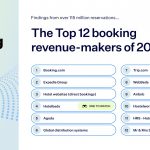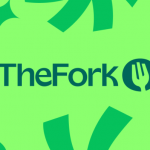These days, employers will do whatever they can to entice candidates to apply and accept their job offers, especially in understaffed industries like hospitality. Job offers are happening after fewer interviews, and benefits are getting better and better. Unfortunately, this makes it tougher to sniff out job scams meant to take advantage of job seekers.
Job scams come in all shapes and sizes, attempting to separate you from your money, or even steal your identity. How can hospitality job seekers spot a fake opportunity from the real deal? Here are eight red flags to look out for throughout the interview process:
Grammatical Errors
Sketchy Email Domains
Investment Requested
The Interview Process is Nonexistent
You Never Had a Conversation
It Sounds Too Good to be True
Employer’s Reputation is Suspect
Grammatical Errors are Everywhere
Whether scammers are attempting to seem more authentic, sneak through spam filters, or just have terrible writing skills, scam messages tend to be full of errors. If the contact person’s written communication is full of blatant typos or is awkwardly worded, consider sending it to your spam folder.
Emails Come from Generic Domains
Most legitimate hiring managers, HR professionals, or recruiters have an email domain that uses their company’s name. If you receive a job offer from a generic email account like Gmail.com or one that consists of random letters and numbers, you can probably send that to spam as well.
You are Asked to Invest
Yes, job hunting sometimes comes with expenses, such as travel costs or a new interview outfit. However, if any company requires you to purchase products, technology supplies, or obscure certifications, head for the hills. This applies to requests for complicated money transfers, or to pay for your own background check. A job offer should never come with a preestablished price tag.
The Interview Process is Nonexistent
If a hotel or restaurant is legitimate, they will want at least one in-person interview before hiring a management candidate, no matter how understaffed they are. Even when a company seems excited about your qualifications, be wary of the “fast-tracked” interview process. If you are rushed into accepting an offer without a chance to vet the company or ask questions, move on.
The Offer Came Without a Conversation
Were you offered a job, but only ever received an email, chat, or text communication? It does not matter how impressive AI or virtual hiring platforms are these days, there will always be a person involved at some point in a legitimate hospitality hiring process. If the entire process lacked a personal conversation, consider other opportunities.
It Seems Too Good to Be True
It certainly is a candidate’s market right now, meaning employers are pulling out all the stops to attract top talent. However, a salary offer that is over the top deserves a healthy amount of skepticism from candidates. We have a handy hospitality salary expectation guide here that can help you benchmark an offer.
Employer’s Reputation is Suspect
Even if an offer passes all the above tests, still do your due diligence. Check out the company’s website and social media. Google search the company as well as your contact person’s name. Search for any reported scams associated with the company on sites like BBB.org. Receiving a job offer should be a joyous moment, but maintaining a critical eye could be the difference between falling prey and walking away unscathed.
Work with Respected Hospitality Recruiters
Having a trusted expert on your side can help bring peace of mind to the interview process. Legitimate recruiters will never ask a candidate for any placement fee or payment for a job guarantee. Horizon Hospitality’s team of recruiters has been placing talented candidates for respected hospitality organizations for 25 years.
If you believe you have fallen victim to a job scam, please make use of the resources provided by the FTC and also report the incident.
The post Job Seekers Beware: 7 Ways to Spot a Job Scam appeared first on Horizon Hospitality.































